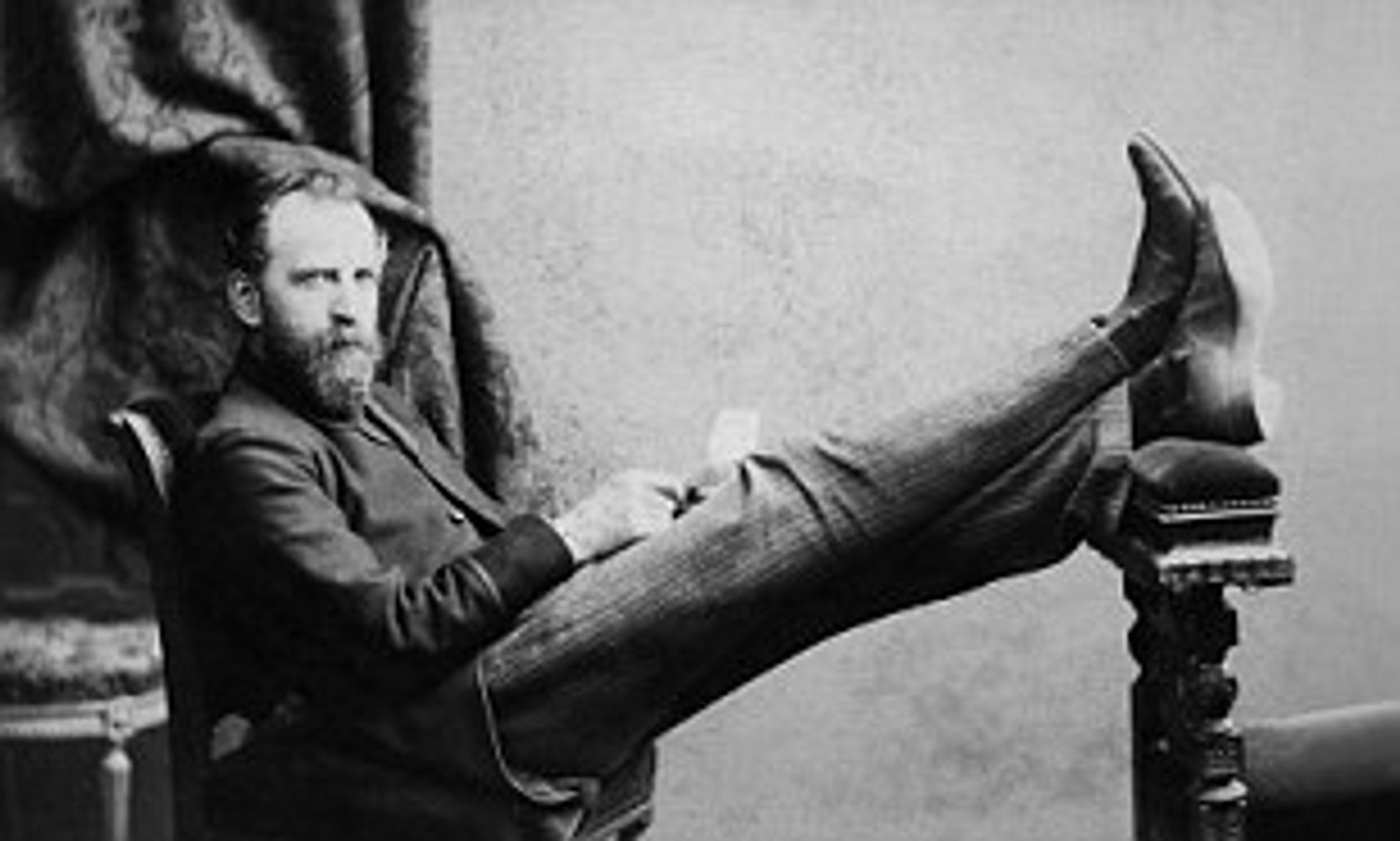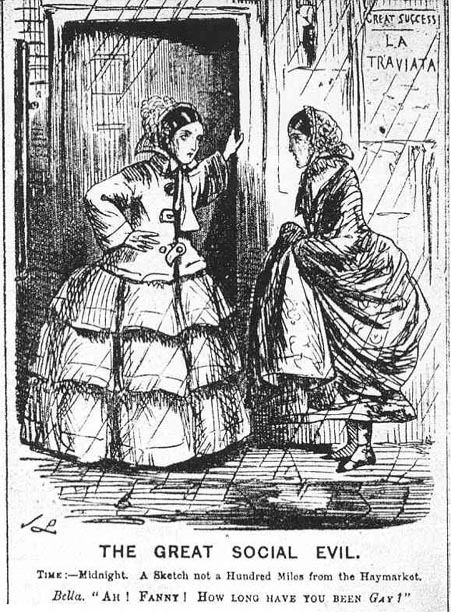Showcasing blogs from my second year module:
Undergraduates on my second year ‘Victorian Literature and Culture’ module have, over the past few years, been asked to submit a blog post as one of their assignments. It’s a type of assessment that gives students practice writing outside the parameters of the academic essay and helps students write succinctly and effectively. The post can deal with any sort of encounter with Victorian culture, as broadly defined as they like. They have to show that they’ve gone beyond the syllabus and we’ve had topics ranging from Hollywood biopics to poisonous wallpaper. Here is a recent highlight:
The Victorian Labyrinth of Prostitution, by Archie Biltcliffe

During a class discussion of prostitution in the Victorian era, we were posed the question: Would you rather be a prostitute or a factory worker? Perhaps swayed by the eponymous mother in Mrs Warren’s Profession, the majority reasoned that prostitution was superior to the back-breaking work and piteous pay associated with 19th-century factories. However, through the examination of W. T. Stead’s ‘The Maiden Tribute of Modern Babylon’ (henceforth ‘Babylon’) I argue that prostitution was an occupation worse than any other in Victorian England. Today, prostitution is still a taboo. I propose that my classmates selected this option as progressive scholars who are not prejudiced against sex work. Yet Stead was a ‘radical Liberal’ (2010, Baylen) himself. Intriguingly, the journalist does not target any form of authority in ‘Babylon’: he attacks human nature. By labelling prostitutes ‘living sacrifices slain in the service of vice’ (1885), Stead couples sibilance with personification to initiate his scathing assault. This emphasises Stead’s belief that the root of sexual exploitation of women is the ‘vice’ of man. Furthermore, Stead demonstrates his forward-thinking agenda by noting that ‘Sexual immorality […] must be dealt with not by the policeman but by the teacher’ (1885). This indicates that prostitution was a societal epidemic and the writer subscribes to the adage of prevention being better than the cure.
But why was prostitution so abhorrent? Stead answers this through vivid descriptions of violent torture that prostitutes were subjected to. One of the most haunting examples involves girls as young as fourteen being ‘strapped down hand and foot to the four posts of the bedstead, so that all resistance save that of unavailing screaming would be impossible.’ (1885) This harrowing narrative is not only a graphic description of the conditions that prostitutes faced, it demonstrates that the Victorian sex industry supported paedophilia and rape. Stead strengthens his argument with a string of damning nouns: ‘ruin’, ‘lost souls’, and ‘doom’ (1885). These are utilised as synonyms for those who found themselves turning to prostitution. No wonder it was referred to as the Great Social Evil.

To investigate the problem, Stead interviewed anonymous brothel keepers. Following this research, the journalist’s examination of the treatment of prostitutes differs drastically from the glamorisation of prostitution in Mrs Warren’s Profession. By noting that ‘a very simple mode of supplying maids is by breeding them’ (1885), the women are instantly dehumanised. The noun ‘breeding’ has strong connotations with livestock, not human lives. This example of sexual slavery indicates that Victorian society viewed prostitutes as subhuman property, to be sold to the highest bidder. The mystique that George Bernard Shaw creates in his 1893 play is quickly swept away in Stead’s investigation.
‘Babylon’ and Mrs Warren’s Profession are two polemical texts about prostitution that both prompted social change. In 1885, ‘the Criminal Law Amendment bill passed into law on the wave-crest of provincial evangelical indignation whipped up by […] ‘Babylon’’ (Roberts, 1995), marking huge social change to protect women and girls against prostitution. However, arguments surrounding the ethics of prostitution still rumble on. There were few occupations for the working-classes in Victorian cities that would seem appealing today, but in my opinion selecting prostitution trivialises the deaths of thousands of women and girls who were sacrificed every year to satisfy society’s ‘vice’.
Bibliography
Roberts, M. J. D. (1995) ‘Feminism and the State in Later Victorian England’, The Historical Journal, 38(1), pp. 85-110.
Baylen, J. O. (2010) Stead, William Thomas. Available at: https://www.attackingthedevil.co.uk/pmg/tribute/mt1.php (Accessed 15 March 2019).
Stead, W. T. (1885) ‘The Maiden Tribute of Modern Babylon’. Available at: https://www.attackingthedevil.co.uk/pmg/tribute/mt1.php (Accessed 15 March 2019).
Leech, J. (1857) ‘The Great Social Evil’ [Cartoon]. Punch, 12 September. Available at https://punch.photoshelter.com/image/I0000zR_fcio_LmQ (Accessed: 15 March 2019). London Stereoscopic Co. (1890)
William Thomas Stead. Available at: http://www.oxforddnb.com/view/10.1093/ref:odnb/9780198614128.001.0001/odnb9780198614128-e-36258?rskey=H71kYq&result=5 (Accessed: 15 March 2019).
Well done on a great piece Archie!
